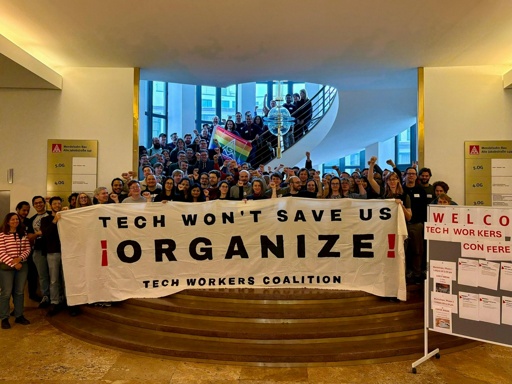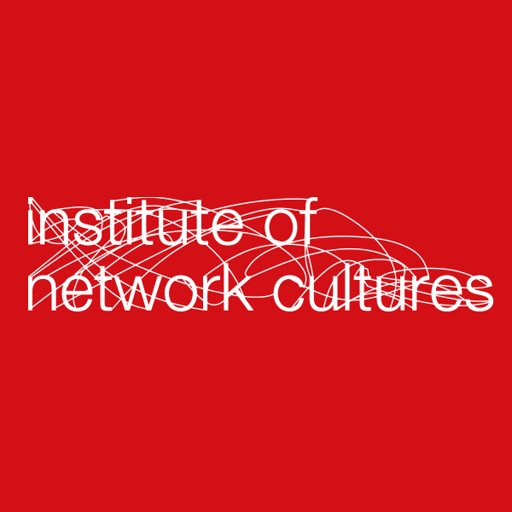- 176 Posts
- 212 Comments
spotify has a whole economy of bots signing up, uploading fake songs listened by other bots and earning lot of money in the process. I know several people living out of this. A little army of scraper bots is definitely not what they should be the most concerned about.

 10·2 days ago
10·2 days agodon’t attract individuals, attract entire groups of people. The idea of moving humans one by one when all of their friends are on centralized platforms will only attract lonely people, who won’t be able to promote the platform. The growth will eventually halt.
Move entire communities that are already connected: specific identities, followers of famous people (which should be onboard with the plan), specific subreddits and so on.
No union in the world asks rates that high. You’ve been probably have been served some kind of management union busting material if you have ever seen a number that high. 3% is considered very high already.
Anyway AWU is not necessarily trying to bargain for higher wages, but they do work on better job security, better working environments, fairness against abuses, sexual harassment and similar stuff, and obviously they support the political work of anti-genocide groups within Google.
There’s always a reason to join a union if you’re a worker.
I would add exploitation of precarious workers both in the USA, Europe and third-world countries. That said, were you involved in Alphabet Workers Union? If not, why?
He’s a brown guy immigrated to NA and writing on a Marxist magazine. I don’t believe in reducing the personal to the biographical like Americans do, but also I think you can guess the answer to a few of your questions.

 61·17 days ago
61·17 days agowhich expands the group of people that can do this from mobile cybersec people to anybody with some foundations of IT management skills

 5·17 days ago
5·17 days agoCET, it’s in the title

 31·18 days ago
31·18 days agoI guess here the topic is more of insurrections, like what’s happening in Iran right now or how it went on in HK

 13·18 days ago
13·18 days agoI have no clue what you believe this event is actually about and why people go there.

 93·19 days ago
93·19 days agoFreedom of information is freedom for the most powerful to use that information for their profit. The more powerful you are, the more tools you have to harness common goods for profit.

 2513·19 days ago
2513·19 days agoGod forbid a technical person becomes an adult and starts understanding power, money, and politics. Engineers should be babies playing with their toys and being idealistic and irresponsible about their impact on the world.

 11·20 days ago
11·20 days agoWe don’t need to involve racism, an American pseudo-science, to consider Americans barbarians. That’s what an American would do: to reduce everything about race when it has nothing to do with it.
Also, it’s white guilt, we all know American liberals and leftists enjoy this stuff.

 8·20 days ago
8·20 days agoWe cut ties with American people because they are annoying, puritanical and self-entitled.

 14·21 days ago
14·21 days agoSaying shit like this is very American, for example.

 151·21 days ago
151·21 days agoInclude anche la lingua inglese. Da adesso su Lemmy si parla solo Italiano.

 5·24 days ago
5·24 days agoMet two people from Transnistria, one from the Isle of Man and one from Micronesia. I wouldn’t say they are super rare but I’m quite sure most American would consider these fictional countries.
In Italian it’s not really used. There’s an extremely fringe group of people who use singular pronouns “Io” (I) but plural adjectives and participles. “Io sono andati” instead of “Io sono andato” or “Io sono stanchi” instead of “Io sono stanco”.
These are regarded as people who spend too much time on Tumblr and consume American media even within the most militant corners of the transfeminist movement, so it doesn’t have much traction.
Most of the discourse is about gender-neutral language rather than pronouns.
To add to the confusion, Italian has no neutral gender, only male and female, but it retains neutral pronouns: esso/essi. The problem is that by ending in “o”, most people think this is an alternative masculine pronoun and use it interchangeably with the masculine pronouns “egli” or “lui”.
I think the point is more general about profiting from “renting” their music rather than from their labor. The fact that Spotify gives them peanuts make their position even more miserable.
if you have the right kind of potato, it’s very easy and it takes less time than most handmade pasta




since botting is so easy, probably they used a lot of accounts to access data that, in theory, is somewhat public. I mean, in an ideal world in which engineers have infinite time sure, they would have noticed, but I do investigations on platform apps for work and trust me, they miss a lot of more fundamental stuff.